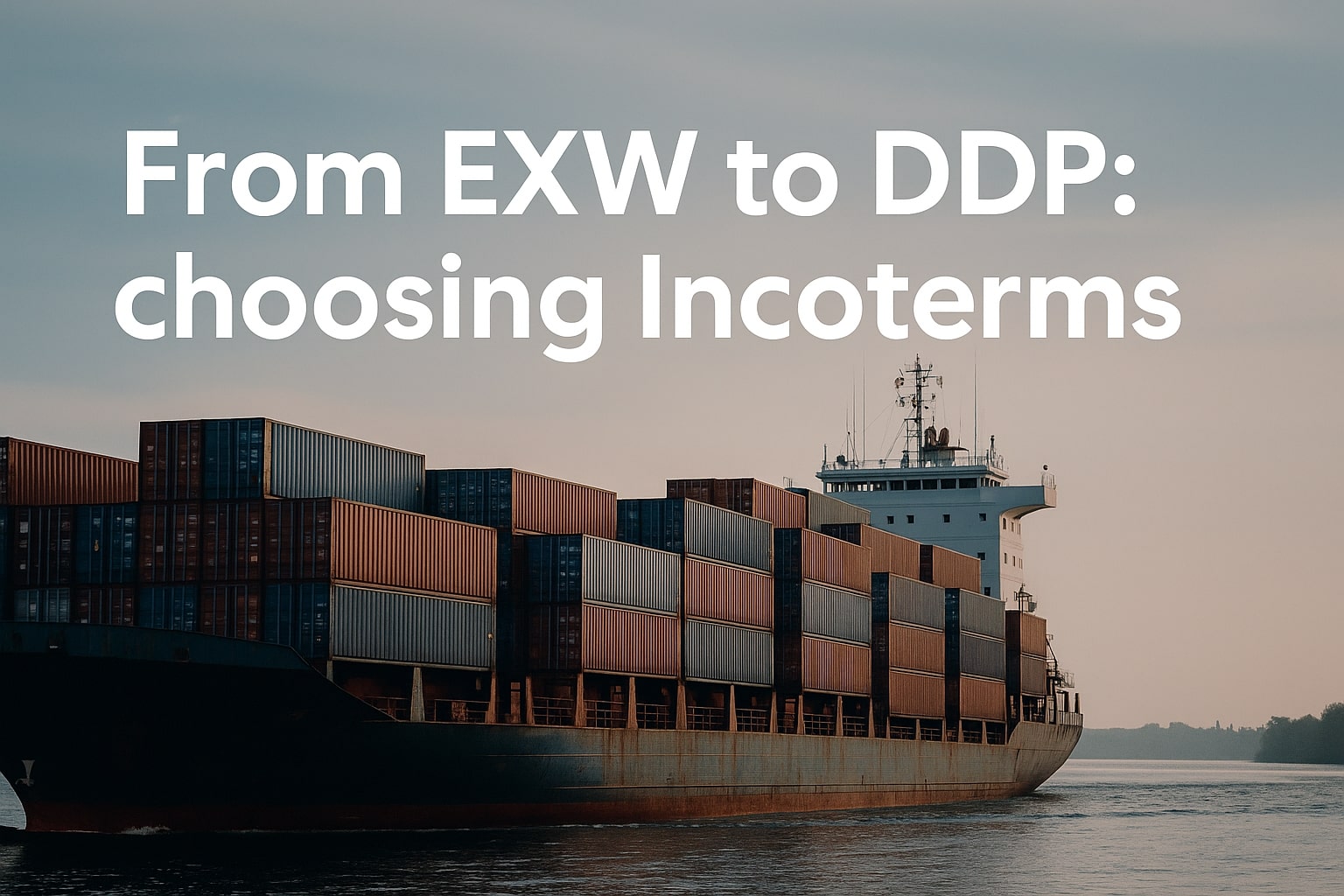Why Incoterms matter
Incoterms define responsibilities for transport, insurance, export/import formalities, and the point where risk transfers from seller to buyer. Picking the right term matches your team’s capability, timeline, and appetite for control.
The common terms in practice
EXW — Ex Works (factory)
- Buyer handles everything from the factory gate.
- Maximum control, but you must manage export clearance and local pickup.
- Use when you have a strong local agent or your own team on the ground.
FOB — Free On Board (named port)
- Seller clears export and delivers onto the vessel; risk passes at loading.
- Balanced choice for ocean freight on first orders.
- Lets you pick your own forwarder and control main carriage costs.
CFR/CIF — Cost & Freight / + Insurance
- Seller books ocean freight to your port (CIF also includes insurance).
- You handle destination charges, customs, and last mile.
- Useful when the seller has competitive rates to your port.
DAP — Delivered At Place
- Seller moves goods to your door or a named place; you clear import and pay duties/taxes.
- Good when you want one party to manage carriage, but keep import control.
DDP — Delivered Duty Paid
- Seller handles everything including import clearance and duties/taxes.
- Simple for your ops, but ensure transparency on landed cost and compliance.
- Watch for VAT registration and documentation obligations in your country.
Risk & cost at a glance
Buyer takes more risk/cost
EXW → FOB → CFR/CIF → DAP → DDP : Seller takes more
- Control: more buyer control toward EXW/FOB, more seller control toward DDP.
- Visibility: own forwarder = better tracking and cost breakdowns.
- Cash flow: duties/VAT timing shifts with DAP/DDP versus FOB/CIF.
Hidden friction to watch
- Local charges at destination under CIF can surprise first-timers.
- DDP may require seller tax registration or a local broker arrangement.
- EXW can stall if the vendor cannot legally export the goods; clarify export party.
A simple selection workflow
- Capability check: Do you have a trusted forwarder/broker? If not, lean FOB/CIF/DAP.
- Speed vs control: Need simplicity now? DAP or DDP. Need cost ownership? FOB/CIF.
- Product risk: High value or fragile, consider CIF with adequate insurance limits.
- Destination rules: Confirm import licenses, labels, and VAT handling early.
- Quote both ways: Ask the supplier for prices on 2–3 terms to compare landed cost.
What to put in your PO
- Incoterm + named place (e.g., FOB Shanghai, DAP Stockholm DC).
- Responsibility split for documents (invoice, packing list, COO, test reports).
- Insurance terms (CIF) and limits; declared value and survey requirements.
- Penalties for late delivery or failed inspections (tie to QC plan).
Need help choosing & negotiating the right term?
We compare landed cost scenarios (FOB vs CIF vs DAP/DDP), align on documentation, and set a QC and freight plan that avoids surprise local charges.
Request an Incoterms consult